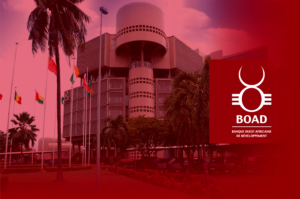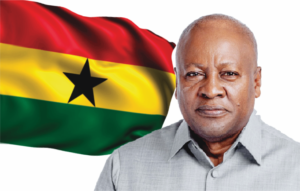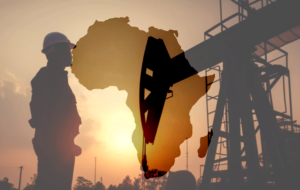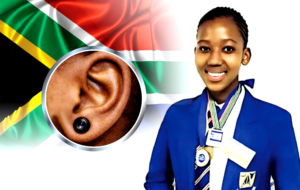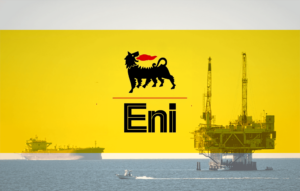Ghana’s Migrant Gamble: Why Accra Accepts US Deportees Despite 15% Tariff Pain
At Accra, Kotoka International Airport this month, the arrival of 14 West African deportees from the United States stirred confusion and anger among Ghanaians. None were Ghanaian nationals, yet they were rerouted through Accra under a quiet deal with Washington.
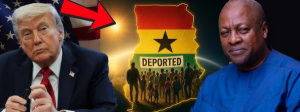
The deportees were four Nigerians, three Togolese, two Malians, one Gambian, one Liberian and three others who spoke to local reporters by phone anonymously, fearing for their safety. Their presence laid bare the uneasy bargain Ghana is making: taking in America’s migrants while grappling with US-imposed tariffs that already have shaved margins off her exports.
President John Mahama’s government insists the decision was not transactional. Foreign minister Samuel Okudzeto Ablakwa defended the move as a continuation of Ghana’s Pan-African tradition. “Since the days of our forebears, Ghana has hosted freedom fighters, welcomed Africans in the diaspora, offered them haven, resources, citizenship and even passports. This is solidarity, not cash-for-migrants.” he said.
The announcement comes just months after Washington slapped a 15% tariff on Ghanaian cocoa, aluminium and manufactured exports. A blow for an economy already under fiscal stress.
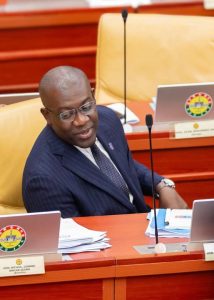
“To ordinary farmers and factory workers, tariffs mean slimmer wages and fewer buyers. But for the investors, they raise red flags about Ghana’s external vulnerabilities. Yet Ghana cannot afford to antagonize the U.S. entirely.” says Daniel Amateye Anim-Prempeh, an economist at the Policy Initiative for Economic Development.
Analysts believe Accra is playing a long game: by appearing cooperative on migration, Ghana hopes to keep diplomatic channels open and eventually soften America’s trade stance. “It’s not about today’s cocoa shipments. It’s about tomorrow’s access to the U.S. market.” Anim-Prempeh notes. On the ground, the policy has sparked mixed reactions. Families in Accra’s bustling Makola Market worry about rising food prices linked to trade disruptions. “We are struggling already. Now government is saying we must host people deported from America? What about our own children without jobs?” Efua Mensah, a trader asked. Yet others see echoes of Ghana’s historic role as a refuge. “We are all West Africans. If they suffer there, we must open the door here. Tomorrow, it could be us.” argues taxi driver Kwame Adjei
The opposition has seized on the controversy, accusing the Mahama administration of breaching the constitution by failing to seek parliamentary approval. “This is a violation of sovereignty. We risk being branded as enablers of Washington’s harsh and discriminatory immigration policies” said Samuel Jinapor, an opposition MP.
The criticism recalls Ghana’s 2016 uproar over hosting two Yemeni detainees from Guantanamo Bay, a decision the Supreme Court later ruled unconstitutional. That precedent still shadows the government.
Across Africa, Washington is searching for willing partners in its third-country deportation program. Rwanda, Uganda and Eswatini have signed on, often with financial incentives. Nigeria has refused outrightly, triggering US visa restrictions.
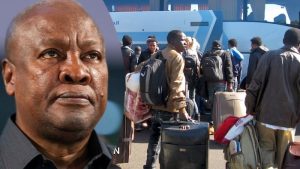
Ghana’s case is different. No money has changed hands, but the diplomatic leverage could be significant. “This is migration diplomacy. Accra is signaling pragmatism. In exchange, it hopes Washington may one day ease tariffs or restore aid flows” says Jervin Naidoo, an analyst with Oxford Economics Africa.
Foreign investors, meanwhile, are parsing the signals. A Ghana that balances humanitarian commitments with economic pragmatism may reassure markets it is not sliding into isolation.
Anim-Prempeh explains that “Investors want stability, not confrontation. If Ghana can show it engages constructively even under pressure, that’s a net positive for confidence. Tariffs were a slap in the face, but Ghana cannot retaliate. The only play is to keep channels open and hope Washington’s pragmatism eventually prevails.”
In the meantime, the government insists deportations will be limited to West Africans and that each case will be vetted. But the debate reflects deeper questions about Ghana’s place in an increasingly transactional global order.
However, between solidarity and sovereignty and between tariffs and trade-offs, Ghana is walking a tightrope. Because for families, workers and exporters alike, the stakes could hardly be higher.


